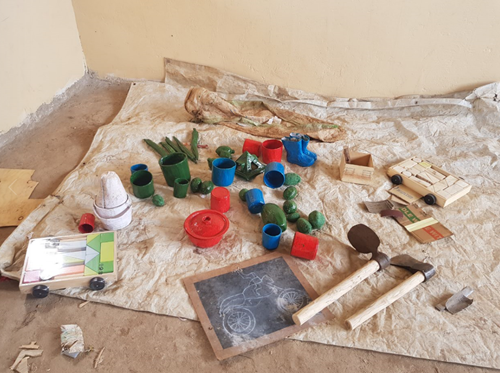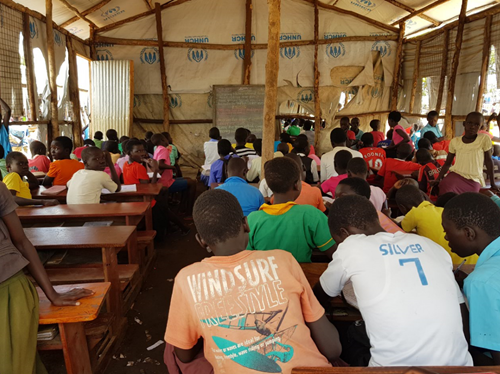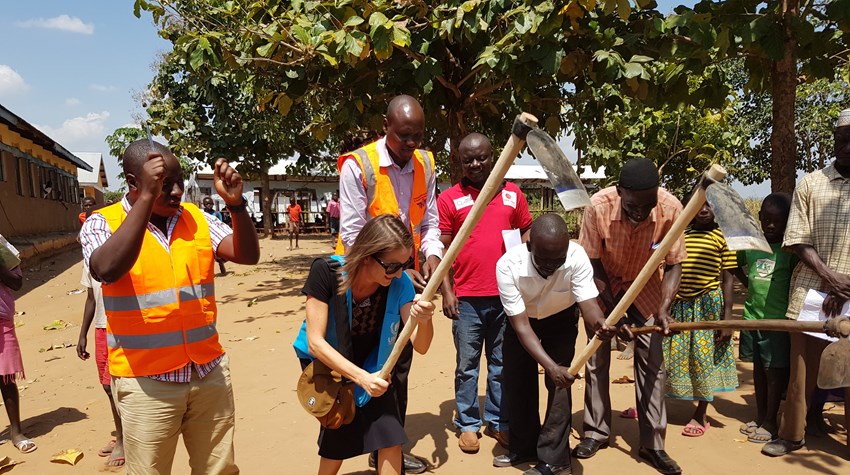I arrived at the Yumbe UNHCR field office, Northern Uganda, on October 1, 2017, to start a three-month deployment as an Education officer. The office is very close to the South Sudanese border, a ten-hour drive from the capital Kampala, and right next to the Bidibidi refugee settlement, which is home to 285,000 refugees, mostly from South Sudan, on an area as big as Lichtenstein. Education is a vital aspect of work in the settlement, as 61% of the population are children under 18. Early Childhood Development centres, Child Friendly Spaces, Accelerated Learning Programs (which give an opportunity to over-age learners to have access to basic education), Primary and Secondary Schools are the education pillars for the five zones of the Bidibidi settlement where UNHCR works with the local Education District and several implementing partners (NGOs).
My role was to provide technical guidance, and monitor strategic planning and implementation of education for the South Sudanese refugees as per UNHCR’s country Education Strategy Education Framework for the South Sudanese refugees in line with the Government Education Sector and Strategic Plan, the UNHCR Global Education Strategy, the SDG 4 –Education 2030 agenda and the Ugandan Comprehensive Refugee Response Framework.
I focused on three main tasks: Early Childhood Development centres mapping exercise for the whole settlement, Special Needs Education and Secondary Schools projects in Yumbe.

Early childhood development tools and toys, made by the community for the children. Photo: Axelle Chazal, RedR Australia
Special Needs Education is an issue in the settlement as children with special needs have to go to boarding schools in Arua, more than two hours away. There are no specialised schools in the settlement or in Yumbe. Refugee children with special needs have to spend several months away from their relatives in order to receive an education adapted to their needs. This is a deterrent for some families who have been through a lot to arrive in Uganda and do not want to be separated from their children. Furthermore, with the influx of refugees from the different settlements - there are about 1 million refugees in the region - the specialized schools in Arua are overcrowded and pushed to the limit.

A school run by UNHCR in Yumbe, Northern Uganda. Photo: Axelle Chazal, RedR Australia
During my deployment, we identified local schools in Yumbe, assessed them and selected one that we hope will welcome 100 hearing impaired children in 2018. This was done in collaboration with the local authorities and Sign Health Uganda (a national NGO that works to promote equal access to social services and opportunities for people with hearing impairment). Much more needs to be done in order to help children with special needs; for some families, special needs are still a taboo and they prefer to keep their children ‘hidden’ at home. UNHCR is working on better ways to identify these children and help all families.
Arrangements that promote the integration of refugee population within the host communities are sustainable education solutions as UNHCR invests in infrastructures that are more permanent and serve both communities.


